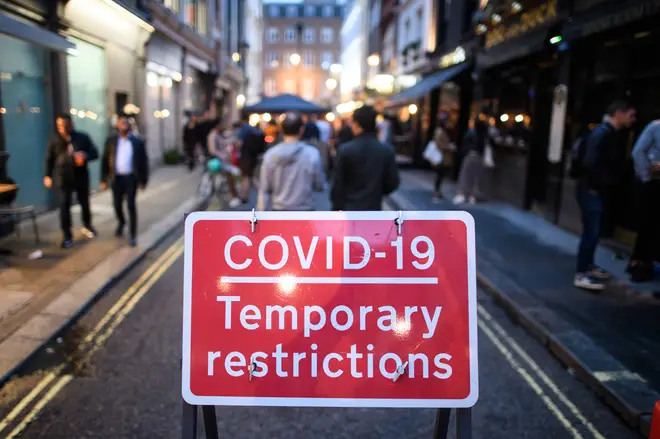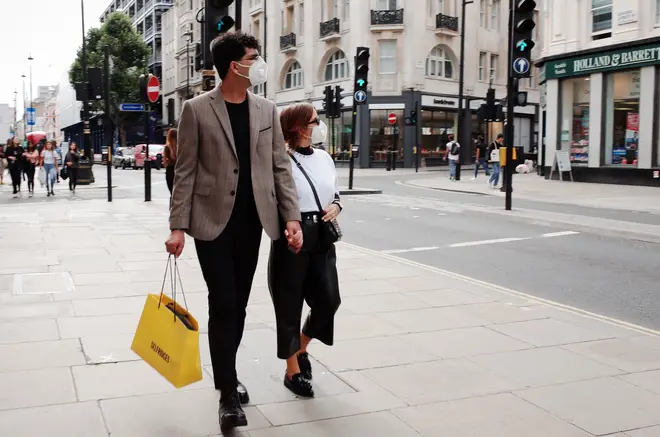
Clive Bull 1am - 4am
10 July 2020, 14:26

The coronavirus R rate has risen in England and could have hit one in some areas - but the growth rate of Covid-19 transmission in the UK has dropped slightly in the last week.
New Government data places the R number at 0.8-1 across the country - up from between 0.8 and 0.9 last week - and could have reached 1.1 in the South West.
The only area which is sure to be under 1 is the Midlands, with a rate of 0.7-0.9, according to the Scientific Advisory Group for Emergencies.
An R number of 1 means that on average every person who is infected will infect 1 other person, meaning the total number of infections is stable.
But the growth rate of Covid-19 transmission in the UK has dropped slightly in the last week, dropping to between minus 5% and minus 2% per day, compared with a rate of minus 6% to 0% per day last week.
The growth rate reflects how quickly the number of infections is changing day by day and, as the number of infections decreases, it is a way of keeping track of the virus.
If the growth rate is greater than zero, and therefore positive, then the disease will grow, and if the growth rate is less than zero, then the disease will shrink.

"Reopening life will be really dangerous going into winter,"
In the East of England, the R rate is between 0.7 and 1, up from 0.7 and 0.9 previously.
Meanwhile in the South West, the R rate rose to between 0.7 and 1.1, compared with 0.7 to 1 from last week.
And in London, the R rate dropped to between 0.7 and 1, down from 0.8 and 1.1 previously.
The news came less than a week after Brits returned to bars, pubs and restaurants on what was dubbed 'Super Saturday.'
Thousands of people celebrated their first night out after months of lockdown, prompting huge crowds in London's Soho.
From today, Brits are able to visit foreign countries without having to self-isolate upon returning to the UK.

The list includes Spain, Germany, France and Italy among a long list of other countries and overseas territories.
Elsewhere, Scotland became the first part of the UK to make wearing a face covering mandatory in shops.
Nicola Sturgeon said she is hopeful people will comply with the new rules and enforcement won't be needed.
The First Minister says they should be regarded as being as necessary as seatbelts in cars.
Fixed penalty notices starting at £60 can be issued by police to anyone refusing to cover their face.
In Wales, Mark Drakeford announced the latest easing of lockdown measures, with pubs, cafes, restaurants and bars able to reopen their indoor offerings from 3 August if coronavirus cases continue to fall.
Listen & subscribe: Global Player | Apple Podcasts | Google Podcasts | Spotify
The First Minister also announced that although two-metres will remain the default social distance, businesses will have to put in place additional measures to minimise the risk of the virus spreading where 2m can’t be maintained.
From Saturday, self-contained accommodation in the tourism industry will re-open, with the vast majority of indoor attractions able to open from Monday.
Outdoors team sports, sports classes and other activities, such as dance and fitness classes, will also be able to take place from Monday.